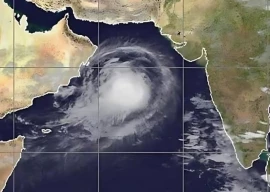
Indian National Security Adviser Shivshankar Menon had told US Senator Claire McCaskill in February 2010, “We are dealing with many Pakistanis, so we need to run many Pakistan policies at the same time,” according to a WikiLeaks cable secured by The Hindu.
“It is a reflection of one of India’s constant problems in doing business with a civilian government given the supremacy of the Pakistan military, particularly on matters related to defence and foreign affairs,” said the report.
The Hindu writes that India’s position regarding Pakistan is that New Delhi would deal with ‘whoever’ is in power. However, when a civilian government is in place, pragmatism dictates that New Delhi features the inclinations of the military and the Inter-Services Intelligence, into its policy, the newspapers adds. According to The Hindu, Menon’s interaction with McCaskill on India-Pakistan relations brings out India’s constant worry over whether or not the Pakistan establishment is on the same page – whether it is in a position to deliver on its promises on the Indian concerns.
A cable dated February 25, 2010 sent by Indian US Ambassador Tim Roemer quoted Menon outlining the rationale behind the decision to resume the dialogue with Pakistan after the December 2001 Parliament attack. Menon noted that in India’s long history of dealing with terrorism “most attacks lead back to Pakistan,” but he stressed that even after the Mumbai attacks, India did not sever trade or travel ties with Pakistan because these elements of the relationship were important to achieving eventual peace with Pakistan.
“Public opinion defined the limits of India’s forbearance, but Menon stressed that India did not wish to play into the hands of the terrorists by shunning dialogue,” the cable said.
The issue of Pakistani soil being used by militant outfits to target India figures prominently in a series of conversations between the Pakistan and US establishments prior to and after 2008.
However, the Indianot only remained sceptical about Pakistan’s claims but also told the US interlocutors in categorical terms that Islamabad had not only not given up terror as an instrument of its foreign policy but also it was incapable of doing so, according to The Hindu.
Published in The Express Tribune, May 22nd, 2011.








1732946669-0/Untitled-design-(10)1732946669-0-270x192.webp)








COMMENTS (7)
Comments are moderated and generally will be posted if they are on-topic and not abusive.
For more information, please see our Comments FAQ